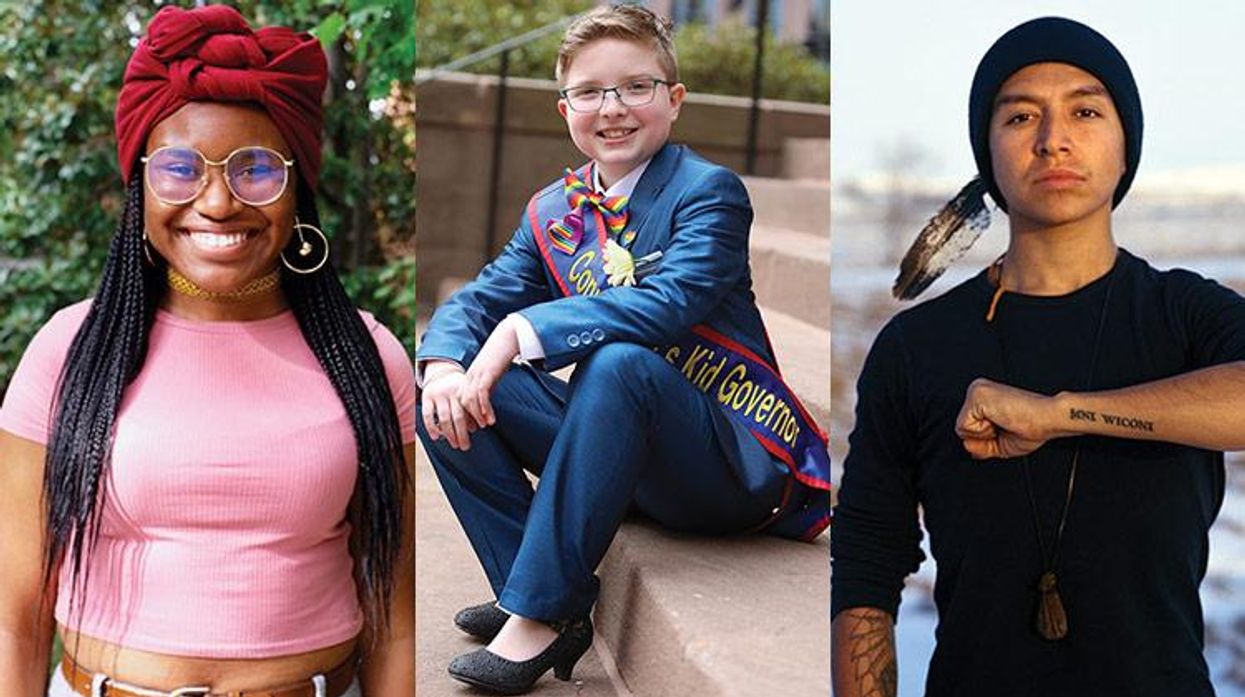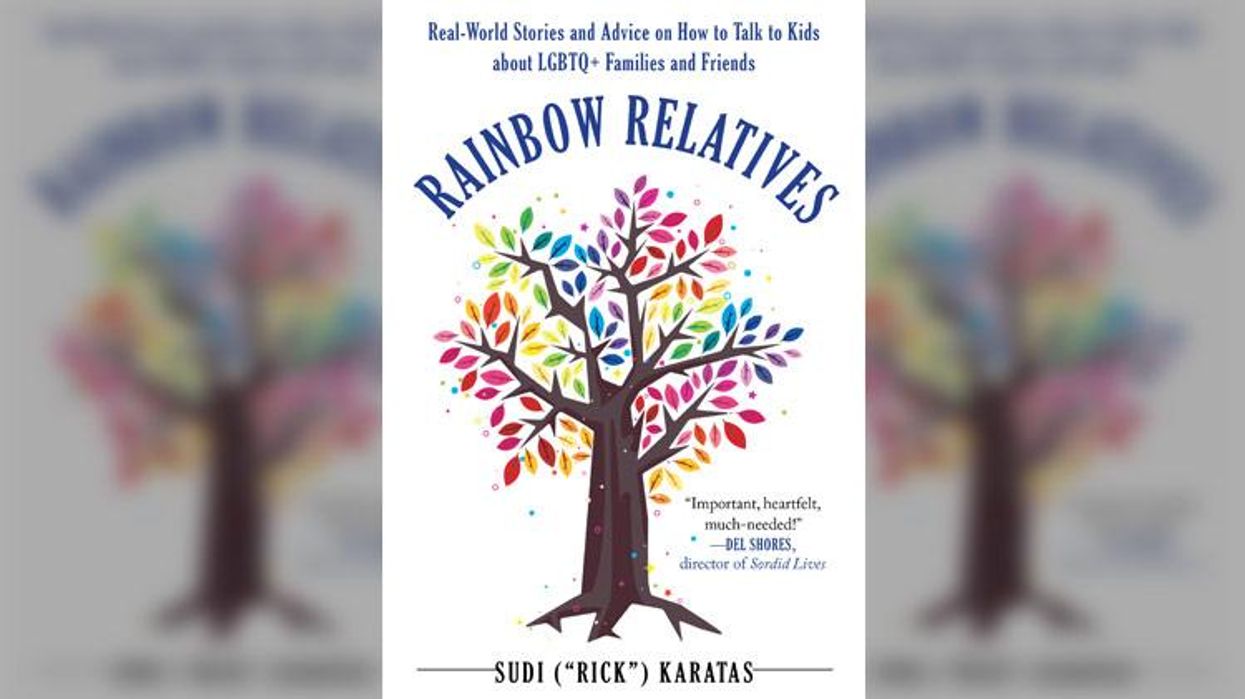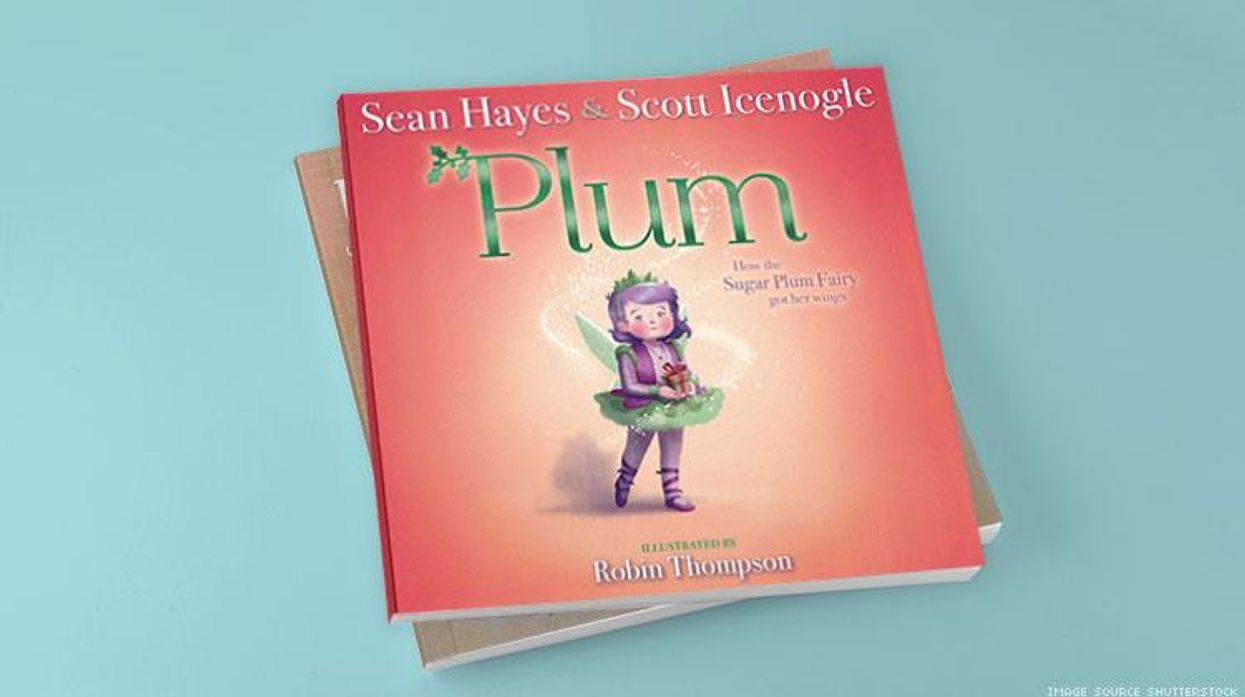Elections matter, and this election dramatizes that notion like no other. This is only the second presidential endorsement by The Advocate; the first was for President Obama's second term. Prior to 2012, there had never been an Oval Office candidate -- or incumbent -- who fully embraced marriage equality, an essential position to earn this publication's endorsement.
Now The Advocate endorses Hillary Clinton with enthusiasm.
In our endorsement of President Obama's reelection four years ago, we noted his administration's embrace of LGBT rights: "Secretary of State Hillary Clinton's moving and historic speech to an international audience of the United Nations' human rights group in Geneva [in December 2011], observing the anniversary of the passage of the Universal Declaration of Human Rights, made the Obama administration's perspective very clear, that LGBT rights are human rights."
Now Clinton has made LGBT inclusion a pillar of her campaign, from the first video announcing her candidacy. She has produced the most complete and impressive LGBT platform of any presidential candidate ever. In it, she has vowed to champion the Equality Act, the legislation that would enact federal nondiscrimination protections with regard to sexual orientation and gender identity. Clinton's policy platform called for an end to the ban on transgender military service -- now officially gone -- an end to quack "conversion therapy" for minors, an end to discrimination against LGBT families in adoptions, improved school conditions for LGBT students, expanded shelters for homeless LGBT youth, affordable treatment for people with HIV, expanded access to PrEP, expanded data collection and other measures to stem the disproportionate violence against trans people, and improved access to correct identification for trans people, along with many other positions that directly affect the rights, health, and welfare of our communities. She has also pledged to continue the United States' work of improving the condition of LGBT people internationally, a natural extension of that pledge made in Geneva.
Clinton has raised these issues with consistency during the primary season, and they have become a hallmark of her campaign heading into the general election.
Clinton's opponent, real estate investor and reality-show host Donald Trump, has no voting record and an arm's-length relationship with the truth, making his policy positions hard to pin down. But the Republican nominee has indicated his eagerness to abandon civil rights in pursuit of an electoral win. His selection of Indiana governor Mike Pence (a sop to the conservative base), who rose to national prominence by signing a disastrously discriminatory anti-LGBT bill into law, underscores Trump's abject refutation of LGBT rights as a principle he considers with any seriousness.
In 2015, Pence pushed through a "Religious Freedom Restoration Act" that gave businesses the ability to refuse service, or to deny insurance, to LGBT people. Civil rights organizations, local and national news media, sports leagues, and businesses all revolted, bringing national attention to Pence -- and to the lack of a federal LGBT antidiscrimination law. The ensuing public relations disaster was also an economic disaster: his state lost thousands of jobs and approximately $60 million in canceled conventions and business expansions; Indiana may ultimately lose more than $250 million because of Pence's decision. While in Congress, Pence voted against the Employment Non-Discrimination Act, the repeal of "don't ask, don't tell," and the Matthew Shepard and James Byrd, Jr., Hate Crimes Prevention Act. He opposes marriage equality and supports traumatic "conversion therapy."
Trump's own statements make him an unsuitable choice for the presidency. The stakes are far too high for LGBT Americans, when so much progress for our rights has been advanced under Obama's leadership. Ignoring the fact that a majority of Republican voters are in favor of federal LGBT nondiscrimination laws, Trump opposes them. He has vowed that if elected president, he would rescind Obama's executive orders that protect trans people from discrimination in health care coverage and in public schools, and the executive order that bans discrimination against LGBT employees of federal contractors (which comprise an estimated 20 percent of the American workforce). He has endorsed the unconstitutional First Amendment Defense Act, a nationalized version of a RFRA, and has said he's interested in appointing Supreme Court justices who would overturn the Obergefell marriage equality ruling. He'd leave marriage equality, access to insurance, employment nondiscrimination, and the option to deny people the use of school and public bathrooms to the states.
The progress we have made as LGBT Americans and as an entire nation is on the line in November. And there is so much more work to be done to secure liberty and safety for our communities: Trans people are under attack; women continue to be marginalized; gun violence is epidemic; queer people can be denied work, housing, even medical care in many states; and violence against people of color is a scourge. Our president has to be a balm for a nation in times of crisis. Can anyone imagine President Donald Trump being the voice of sanity -- or even offering a coherent thought -- when, inevitably, the next man-made catastrophe strikes? He may be a billionaire (we can't know for sure; he won't release his tax returns), but more significantly, Trump is viewed globally as an entertainer, and thus he cannot advance our national interests around the world.
Clinton is a calm, deliberative leader with decades of public service experience and an impressive command of policy, detail, and the concerns of overlapping minority communities. Whereas Trump alienates women, Muslims, immigrants, and LGBT people, Clinton's record as a U.S. senator is marked by bipartisanship, and her campaign is marked by inclusivity.
To imagine that the election result is a foregone conclusion -- that Clinton will handily and easily defeat Trump in November without serious effort on the part of an engaged electorate -- is a mistake. The U.K.'s Brexit vote is an example of left-leaning activists and voters wrongly assuming that voters will exercise "common sense."
There is no foregone conclusion. There is no obvious outcome. But there is only one capable candidate in this election, and only one candidate who is a champion of LGBT causes. That clear and necessary choice is Hillary Clinton.















Charlie Kirk DID say stoning gay people was the 'perfect law' — and these other heinous quotes
These are some of his worst comments about LGBTQ+ people made by Charlie Kirk.